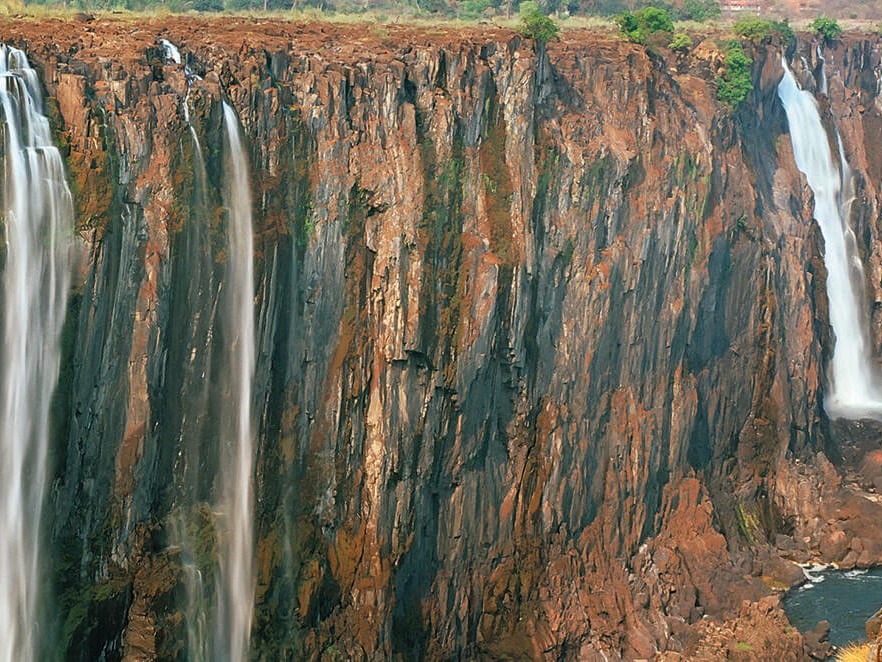
The Street View: Africa Energy
What is happening
The drying up of Victoria Falls, the destruction of Cyclone Idai across Mozambique, and the water shortage in Cape Town: climate events in Africa are devastating, especially given the continent’s weak ability to respond and recover.
30% of Africa’s installed generation capacity is renewables, with 77% of that from hydro plants. The continent’s pivot to renewables is clear cut, regardless of the climate incentive. The old argument of “Let the developed world take the burden of higher cost renewables while we build our dirty but cheap baseload” no longer rings true. Renewable generation is now lower cost per kWh to produce than thermal, plus renewables increase the continent’s energy security, as they don’t require the importing of gas, coal or liquid fuels which come with hard currency invoices in addition to the carbon emissions.
Despite the sound business case for renewables, political will is often years behind the private sector. African utilities and governments have been slow to embrace renewable technologies because of outdated misconceptions on price, entrenched interests in the thermal fuel sector and a focus on the transition of labour from mining to new industries.
What Actis is doing
We, the Actis Africa Energy Infrastructure team, are focused on two things: first, reducing the pace of climate change via our investment strategy, and second, reducing the risks of climate change within our own energy investments.
Our Energy Infrastructure investment strategy in Africa covers all the tools of the low carbon trajectory, including generation, distribution and storage. On the generation side, we focus on power generation from solar PV, wind and gas, with selective investments in liquid fuel burning assets which we can switch to lower-carbon gas.
We view gas as a lower carbon, medium term baseload solution preferable to other more polluting and less flexible resources such as coal and liquid fuels and therefore bridging the gap to an all-renewables future. Actis is the only investor who has wind projects under construction in all four of Africa’s regions – north, south, west and east.
By the end of 2020, upon completion of the wind and solar projects currently under construction, the net carbon savings from the Actis Africa platforms (1428MW Lekela and BioTherm renewables portfolios, offset by the 629MW thermal portfolio of Azura), will be 1.5 million tons of carbon per year.
Our investment strategy in Africa also focuses on power distribution companies such as Eneo, the integrated utility in Cameroon. A key part of the investment thesis of Eneo is to reduce the losses on the network, as well as developing a commercially sustainable sector for the long term.
Reducing energy losses means that less energy production is required to supply the same amount of electricity, while a commercially sustainable sector with cost reflective tariffs and demand growth that is met by appropriately priced generation, progressively loses the need for explicit government support in the form of guarantees.
Energy storage is starting to gather momentum as a transformational technology for African energy sectors. Battery technology can support weak grids so that they can digest more low cost but intermittent wind and solar generation, as well as providing services and reducing system losses. We see a number of energy storage opportunities in our pipeline.
Climate change is already included in our due diligence on resource risk. Diligence requires investors to “go the extra mile” as the market has historically under-valued the risk due to shorter term investment horizons.
We are increasingly seeing the need for deeper analysis, for example within the Kipeto (100MW Kenyan wind development) transaction we incurred additional cost installing a LIDAR instrument at site to enable confirmation of the thesis of the driving mechanism behind the wind resource and concluded that climate risk would not be a factor in returns.
Within the spectrum of climate change in Africa, there is clearly need, opportunity and risk. Winners will be those who ride the wave of investment opportunities while having sophistication and expertise in navigating the associated risks.